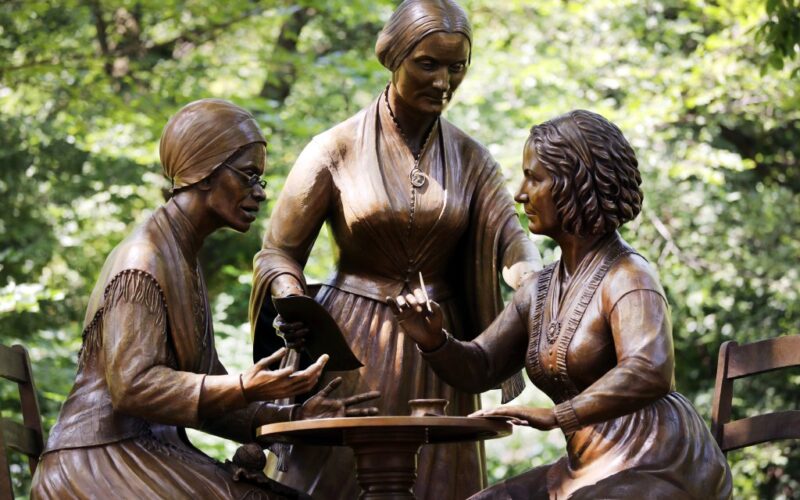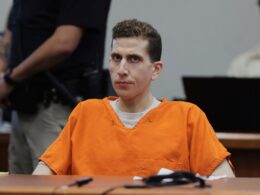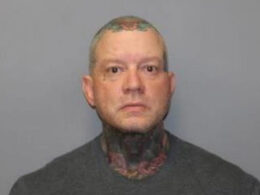We, the daughters of the suffragist movement, write in our opposition to the SAVE Act (S. 128), which was passed by the House and is currently before the Senate. Karen shares ancestry with Susan B. Anthony, and Jennifer shares ancestry with Elizabeth Cady Stanton. We are keenly aware of the history of the suffrage movement and the ongoing struggle for women’s voting rights.
The SAVE Act purports to keep illegal immigrants from voting and amends the National Voter Registration Act of 1993. The SAVE Act would require proof of citizenship, in the form of a birth certificate or a U.S. passport, when one moves, changes party affiliation, undergoes a name change, or registers to vote for the first time. This Act would require these documents to be presented in person to the appropriate election official by the registration deadline.
We believe that this will disproportionately affect the voting rights of women. As currently written, the SAVE Act unduly affects women by requiring them to provide proof of citizenship in person when registering for the first time or updating their registration.
Adding to these obstacles, if a woman’s name differs from what is on these original documents, she would be required to provide in-person documentation, such as a divorce decree, a marriage or name change court order. The loss of original documents and the difficulty in obtaining duplicate paperwork through the court system create unfair disadvantages for women, in addition to the financial hurdles they present.
Women who live in rural communities, the elderly, disabled, or those who have limited resources would be disproportionately affected, creating obstacles to voting that do not currently exist.
This is not only damaging to the voting rights of women, but it is unnecessary legislation. According to the Brennan Center for Justice, only 30 cases of suspected voting by noncitizens were discovered among the 23.5 million votes studied from the 2016 election. This translates to only 0.0001% among a voting jurisdiction with a high immigrant population. This bill is not only unnecessary to address such a small number of illegal votes, but it will, in essence, prevent countless legitimate votes for many women.
Defense Secretary Pete Hegseth recently reposted and praised a video from a pastor who does not believe that women should be allowed to vote. The SAVE Act takes steps towards this ideology by limiting voting access to women and by creating needless barriers. If enacted, these measures would return women to a time when their rights are restricted and their voices silenced.
Our ancestors fought tirelessly for decades for the rights of women so that they would have the ability to own property, divorce abusive spouses, to obtain custody of their children, among other rights that were not previously granted to them.
As the ability to vote is the gateway to other rights, silencing even some of our voices through unnecessary barriers is one of the first steps towards returning us to this dark era.
Most women today can only remember a time when we had the right to have our own credit cards, own land, have custody of our children, and to vote. We must not take these rights for granted, as they are slowly eroded under the guise of preventing illegal votes, a problem which is far less common than portrayed, and could be addressed through other measures that do not prevent some women from exercising their constitutional rights. We must not return to this dark era.
It is imperative that Democratic, Republican, and independent women stand against the SAVE Act in order to preserve our hard-won rights that took almost 72 years to obtain. We must not lose these cherished rights through gradualistic measures, which slowly erode our ability to have our voices heard.
When fewer women are able to vote, other issues that predominantly affect women will also be impacted. The ripple effects of this bill will extend to other legislation as our voices become silenced and our voting numbers diminish. It is essential that we remember our heritage of strong, hard-working women who refused to let their voices be muted, and as a result, shaped our modern world. We must not step back into a time when these rights were not available to all women, regardless of their background or social status.
Reach out to your senators, telling them that the voices of all women will not be silenced, and to vote down this damaging legislation.
Benedict, a retired office administrator and paralegal, is an eighth cousin of Susan B. Anthony. Stanton, a lecturer of analytical writing at California State University, is a fifth cousin of Elizabeth Cady Stanton.








